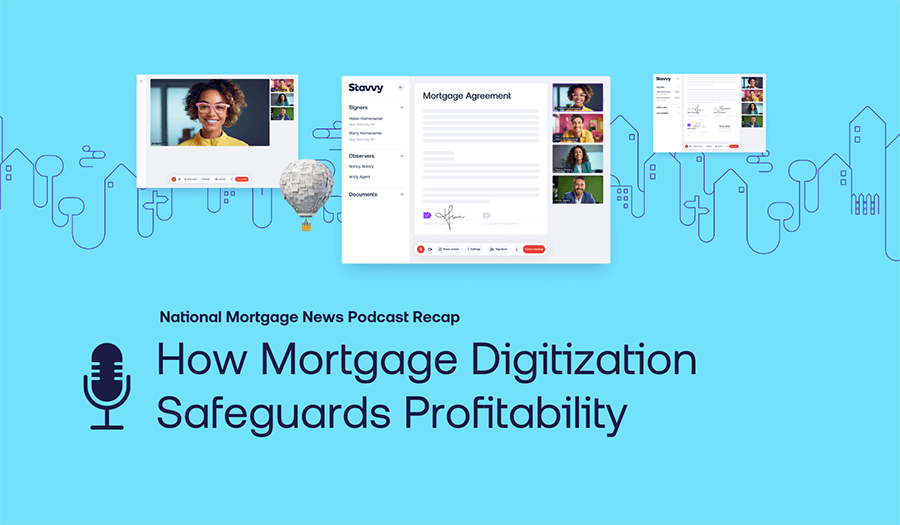Many real estate transactions require the notarization of documents. But, we might not fully understand why — especially in our highly digital age. What does that stamp signify, and how is the person placing it on our documents qualified to do so?
This guide to notarization addresses questions about notarization related to real estate. It also provides an inside look into how notaries and real estate notarization are evolving in today’s digital world.
Fun historical notarization facts
- According to the National Notary Association, the true notary lineage began in the Roman Empire sometime in the 6th century when a Roman enslaved person named Tiro developed a shorthand notation method (notae).
- In colonial America, notary privileges were only given to people with the highest moral fortitude to keep parties on each end of the trans-Atlantic trade route honest.
- Unclear whether it was an oversight or not, there was no mention of how notaries were to be appointed in the first draft of the constitution — thus making it a responsibility of each state.
- Notary seals started as wax stamps, which usually depicted the coat of arms of a particular group or family.
- As literacy increased and signatures held more importance, notary seals moved away from wax to paper-based seals requiring the notary’s signature.
What is a notary?
Also known as a “notary public,” notaries are neutral third parties who witness the signing of legal documents. State governments appoint notaries and must swear an oath of office to perform their duties. The primary role of a notary is to deter fraud from legally binding agreements.
Anyone over the age of 18 can apply to become a notary. Notary requirements vary from state to state, but most states require the applicant to take a course, pass an exam, and live in the state where they perform the notarization services.
Which real estate documents require notarization?
Notaries certify many different types of life-changing documents for all people, but this guide will focus on those regarding real estate. Each state has its own requirements for which records must be notarized. Below is a rundown of some of the most common real estate documents that require notarization.
Deeds
Deeds are legal documents that convey ownership of a property. Types commonly used in real estate transactions include warranty deeds, quitclaim deeds, and grant deeds. These need to be notarized to ensure authenticity.
Security instruments
Security instruments secure the loans on properties. Most commonly, these are mortgages or deeds of trust. These security instruments must be notarized to confirm the borrower's identity and willingness to enter into the agreement.
Power of attorney
Power of attorney allows a designated individual to act on behalf of another person. It requires notarization to establish the validity of both parties' consent.
Affidavits
Affidavits are sworn statements made in writing and confirmed by the party's oath. These require notarization to substantiate the truthfulness of the statement.
Local or state-specific documents
Various statutes may require additional documents to be notarized, depending on jurisdiction.
Real estate notary FAQs
So, you know you’ll be conducting a real estate transaction. But, since state laws vary, you might have some concerns about being able to meet your state’s specific requirements. While your closing agent or attorney should be ensuring all transactions are legally binding, below are some common FAQs surrounding real estate notarization
Do I need an attorney?
In states known as "attorney closing states," an attorney’s presence is required at real estate closings. These states often have specific regulations governing the role of an attorney in the notarization process during a real estate closing. In some attorney states, the attorney may serve as the notary public or oversee the notarization of documents, ensuring that they are executed correctly. The attorney's role in the notarization process adds an extra layer of legal protection, helping to ensure that the transaction complies with state-specific laws and regulations.
What is the difference between a notary and a loan signing agent?
A loan signing agent is a specialized type of notary public trained to handle the signing of mortgage documents. They are essential in facilitating the loan closing process by ensuring the proper execution of all loan documents, which are notarized and returned for processing.
The primary distinction between a standard notary and a loan signing agent lies in the expertise and responsibilities related to mortgage transactions. While standard notaries are authorized to witness and confirm the signing of documents, signing agents are specifically trained in handling real estate documents. Signing agents typically have in-depth knowledge of the loan closing process.
Where does real estate notarization take place?
The shift towards electronic closings is modernizing the real estate notarization process. While in the past, most people would close and notarize documents at physical locations like attorney offices, banks, or title companies, today's transactions are increasingly digital. Even in places where legal professionals oversee closings, the trend is leaning towards online methods. This move to electronic procedures reflects a broader change in how we handle real estate, emphasizing efficiency and convenience.
However, while digital transactions might be becoming the preference, legacy forms of closing and notarization must still be accepted. Below are the currently accepted closing and notarization methods, both digital and non-digital.
In-office closing: This is the traditional method where all parties meet in a physical location, usually an attorney or title company's office. The title company or attorney's office often provides the notary.
Mail-away closing: For those unable to attend an in-person closing, documents can be sent via mail for signatures. A local notary must then authenticate the documents.
Mobile notary: In this method, a mobile notary comes to your location to notarize the documents. Mobile notarization is helpful for individuals who cannot travel to an office location.
Online closing: Due to technological advancements, those involved in real estate transactions can now electronically sign some or all closing documents. Hybrid closings blend electronic signing and in-person paper notarization, while remote online notarization takes it a step further by allowing electronic notarization via video conferencing software.
What is remote online notarization (RON)?
Remote online notarization (RON) involves using electronic signature technology (eSignature) to close real estate and other similar transactions remotely. With the help of remote meeting services, real estate agents, buyers, sellers, and notaries can all meet remotely to perform time-sensitive real estate closings, refinances, and other closing transactions.
The COVID-19 pandemic spurred rapid advancement of remote services out of public safety concerns. However, those who adopted eClosings quickly realized there were many other underlying benefits — convenience leading the pack. No longer must all parties take extra time traveling to a centralized location and spend hours signing paper documents. Cost savings, added security and a better overall customer experience are additional benefits of an eClosing platform.
What is in-person electronic notarization (IPEN)?
As mentioned above, even if a title company or other RON provider is a digital closing maturity leader, they still need to be able to offer their customers a traditional, in-person signing experience to those who prefer it. IPEN allows the signer and notary (or signing agent) to meet in the same physical location and conduct a swift signing on a tablet or similar device.
IPEN preserves the personal touch of a traditional closing while still providing closers with all the convenience, efficiency, and productivity of a fully digital workflow. Organizations leveraging IPEN can also expect to see efficiencies increase and costs per transaction decrease, eliminating the resources required to print, prepare, and perform a traditional paper closing.
IPEN can also improve accuracy by reducing oversight associated with human error. The built-in digital workflows of IPEN reduce the risk of missed documents, signatures, and costly post-closing remediation.
What if my real estate business needs help finding a notary?
Most established real estate and title companies have partnerships with several notaries or have their own notaries or signing agents on the payroll. Still, despite this, scheduling a notary to be present at closing can be challenging at times. In-house notaries at title companies can't always manage the fluctuating demand, especially during peak real estate seasons, making external signing services valuable for scaling operations efficiently.
Thanks to RON and the other supporting digital closing tools listed above, real estate and title agents can be paired remotely with verified third-party notaries through a notary signing service.
Notary signing services offer multiple benefits to title and settlement companies, including the availability of notaries outside regular business hours, or in times of high seasonal demand, which enables greater flexibility for customers. Utilizing notary signing services can also enhance productivity by allowing title companies to focus on their core responsibilities rather than administrative tasks associated with notarizations. These services can also offer the availability of mobile notaries using IPEN, which can increase customer convenience by enabling a faster and more secure experience.
Overall, a notary signing service can offer value by boosting efficiency, helping manage fluctuating demands, and offering greater convenience to title companies and their clients.
Learn more about how the  is taking real estate beyond documents.
is taking real estate beyond documents.



![[Webinar Recap] Advancing Your Digital Default Servicing Strategy](https://blog.stavvy.com/hubfs/advancing-your-digital-default-servicing-strategy-blog-recap.png)